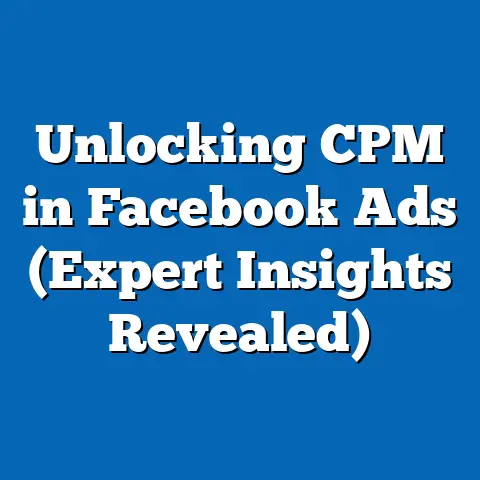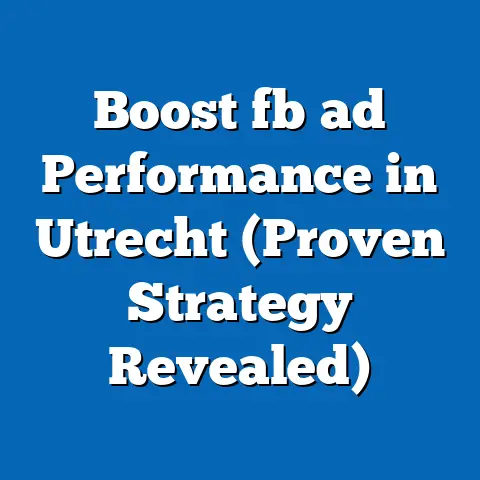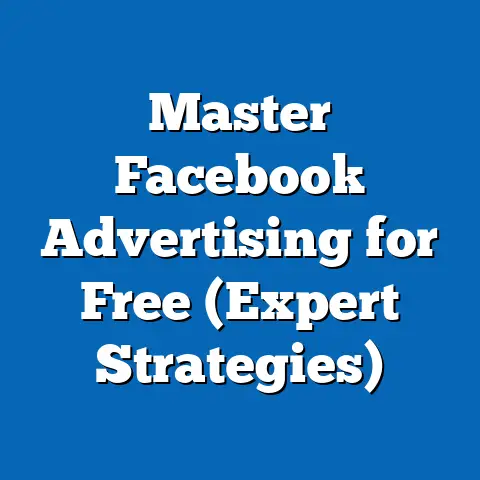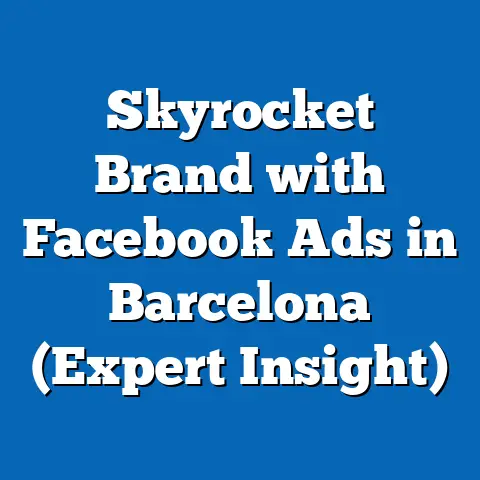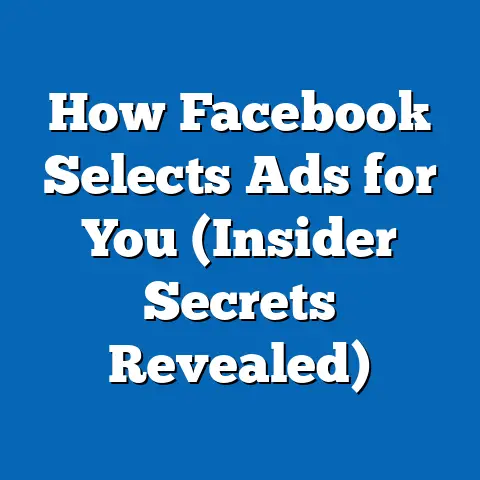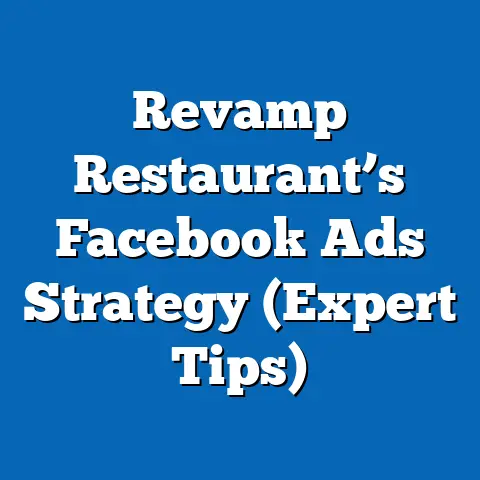Stop Sponsored Ads on Facebook Now (Ultimate Guide Inside)
Facebook, the social media giant, is awash in sponsored ads.
They’re everywhere – in your newsfeed, in groups, even in Marketplace.
As a digital marketer who’s been in the trenches for years, I’ve seen firsthand how these ads have become a dominant force, shaping user experience and influencing business strategies.
But is this dominance truly justified?
Are sponsored ads as effective as they claim to be?
And more importantly, are they ethically sound?
I’ve watched the landscape of Facebook advertising evolve, and I’ve had my share of both successes and frustrations.
There was the time I poured a significant budget into a campaign, only to see minimal returns and a barrage of negative comments about the intrusive nature of the ads.
It was a wake-up call, forcing me to question the fundamental value of relying so heavily on sponsored content.
This guide isn’t about demonizing Facebook or advertising in general.
It’s about empowering you – whether you’re a user tired of being bombarded with ads or a business owner seeking more authentic and effective marketing strategies.
It’s time to re-evaluate the role of sponsored ads and explore alternatives that prioritize genuine connection and sustainable growth.
Understanding Sponsored Ads
Sponsored ads are essentially paid content that businesses use to promote their products or services on Facebook.
They appear alongside organic posts and are designed to blend in seamlessly with the user’s newsfeed.
These ads are targeted based on a variety of factors, including demographics, interests, behaviors, and even location.
Facebook offers a range of sponsored ad formats to cater to different marketing objectives:
- Image Ads: Simple yet effective, image ads feature a single compelling visual paired with concise text.
- Video Ads: Captivating and engaging, video ads can tell a story and showcase a product or service in action.
- Carousel Ads: Allow users to swipe through multiple images or videos, each with its own headline, description, and link.
- Collection Ads: Designed for e-commerce, collection ads display a curated selection of products that users can browse and purchase directly from the ad.
The numbers speak for themselves.
According to Statista, Facebook’s advertising revenue reached a staggering \$116.6 billion in 2022.
This highlights the platform’s immense power as an advertising channel, but also underscores the potential for over-saturation and user fatigue.
Takeaway: Sponsored ads are a powerful tool for businesses, but understanding their different formats and intended purpose is crucial for both advertisers and users.
The Case Against Sponsored Ads
While sponsored ads can be effective in certain situations, they’re not without their drawbacks.
In my experience, the biggest issues revolve around user experience, trust, and return on investment.
User Experience: Let’s face it, nobody enjoys being constantly bombarded with ads.
Too many sponsored posts can clutter the newsfeed, making it difficult to find content from friends and family.
This can lead to ad fatigue, where users become desensitized to ads and stop paying attention altogether.
Trust Issues: The rise of targeted advertising has also raised significant privacy concerns.
Many users feel uncomfortable knowing that their online activity is being tracked and used to personalize ads.
This can erode trust in both Facebook and the brands that advertise on the platform.
I remember one particularly heated discussion in a Facebook group I belonged to, where members expressed outrage at the accuracy of the targeted ads, feeling like their privacy had been violated.
ROI Question Marks: Despite the massive spending on Facebook ads, their effectiveness is often questionable.
While it’s possible to generate leads and sales, it’s also easy to waste money on poorly targeted campaigns that yield little to no results.
I’ve seen countless businesses pour money into Facebook ads without a clear strategy, only to be disappointed by the lack of ROI.
Many brands are starting to question the value of relying solely on Facebook ads.
Some, like Patagonia, have even taken a stand against the platform due to concerns about misinformation and hate speech.
These brands are exploring alternative marketing strategies that align with their values and prioritize genuine connection with their audience.
Takeaway: Sponsored ads can negatively impact user experience, erode trust, and fail to deliver a satisfactory ROI.
Brands are increasingly exploring alternatives that prioritize authenticity and ethical considerations.
Alternatives to Sponsored Ads
So, what are the alternatives to sponsored ads?
As I’ve experimented with different marketing strategies, I’ve found that organic content creation, influencer partnerships, and community engagement can be incredibly effective in building brand awareness and driving conversions.
Organic Content Creation: Creating valuable and engaging content that resonates with your target audience is a cornerstone of effective marketing.
This could include blog posts, videos, infographics, or even just thoughtful social media updates.
The key is to provide something that your audience finds genuinely useful or entertaining.
Influencer Partnerships: Collaborating with influencers who have a strong following and a genuine connection with your target audience can be a powerful way to reach new customers.
Influencers can create sponsored content that feels more authentic and less like a traditional ad.
Community Engagement: Building a strong community around your brand can foster loyalty and drive word-of-mouth marketing.
This could involve creating a Facebook group, hosting online events, or simply engaging with your followers on social media.
Each of these alternatives offers unique benefits.
Organic content creation is cost-effective and builds long-term brand authority.
Influencer partnerships provide access to a wider audience and can generate a higher level of engagement.
Community engagement fosters loyalty and drives word-of-mouth marketing.
For example, consider the success of the skincare brand Glossier.
They built a massive following by focusing on organic content and community engagement.
They actively solicit feedback from their customers and use that feedback to inform their product development.
This creates a sense of ownership and loyalty among their customers, who become brand advocates.
Takeaway: Organic content creation, influencer partnerships, and community engagement offer viable alternatives to sponsored ads, providing cost-effectiveness, authenticity, and user engagement.
How to Transition Away from Sponsored Ads
Transitioning away from sponsored ads requires a strategic approach.
It’s not about abandoning Facebook altogether, but rather about shifting your focus to more sustainable and authentic marketing strategies.
Here’s a step-by-step guide:
Assess Your Current Marketing Strategies: Take a close look at your current marketing efforts.
How much are you spending on Facebook ads?
What are your key performance indicators (KPIs)?
Are you achieving your goals?Understand Your Target Audience (Without Ads): It’s crucial to understand your target audience without relying on Facebook’s targeting tools.
Conduct market research, analyze your existing customer data, and identify the pain points and needs of your ideal customer.Create Compelling Content: Develop a content strategy that focuses on providing value to your target audience.
This could include blog posts, videos, infographics, or even just thoughtful social media updates.
Make sure your content is relevant, engaging, and optimized for search engines.Engage with Your Community: Foster a sense of community around your brand by creating a Facebook group, hosting online events, or simply engaging with your followers on social media.
Respond to comments, answer questions, and encourage discussions.Track Your Metrics: Monitor your progress closely.
Track your website traffic, social media engagement, and lead generation.
Use these metrics to measure the effectiveness of your alternative marketing strategies and make adjustments as needed.
Assess Your Current Marketing Strategies: Take a close look at your current marketing efforts.
How much are you spending on Facebook ads?
What are your key performance indicators (KPIs)?
Are you achieving your goals?
Understand Your Target Audience (Without Ads): It’s crucial to understand your target audience without relying on Facebook’s targeting tools.
Conduct market research, analyze your existing customer data, and identify the pain points and needs of your ideal customer.
Create Compelling Content: Develop a content strategy that focuses on providing value to your target audience.
This could include blog posts, videos, infographics, or even just thoughtful social media updates.
Make sure your content is relevant, engaging, and optimized for search engines.
Engage with Your Community: Foster a sense of community around your brand by creating a Facebook group, hosting online events, or simply engaging with your followers on social media.
Respond to comments, answer questions, and encourage discussions.
Track Your Metrics: Monitor your progress closely.
Track your website traffic, social media engagement, and lead generation.
Use these metrics to measure the effectiveness of your alternative marketing strategies and make adjustments as needed.
Building a strong organic presence on Facebook and other platforms takes time and effort.
It’s not a quick fix, but it’s a sustainable strategy that can deliver long-term results.
Focus on building genuine relationships with your audience and providing value through your content and engagement.
Takeaway: Transitioning away from sponsored ads requires a strategic approach, including assessing current strategies, understanding the target audience, creating compelling content, engaging with the community, and tracking metrics.
Conclusion
Sponsored ads have long been a staple in digital marketing, but it’s time to re-evaluate their effectiveness and ethical implications.
As I’ve shown, they can negatively impact user experience, erode trust, and fail to deliver a satisfactory ROI.
Fortunately, there are viable alternatives, such as organic content creation, influencer partnerships, and community engagement, that prioritize genuine connection and sustainable growth.
I believe that businesses and users alike should consider the implications of sponsored ads and explore alternative strategies.
By reassessing your marketing approaches and embracing a more authentic connection with your audience, you can build a stronger brand, foster loyalty, and achieve long-term success.
Now, I want to hear from you.
What are your experiences with sponsored ads?
Have you found them to be effective, or have you explored alternative marketing strategies?
Share your thoughts and experiences in the comments below.
Let’s start a conversation about the future of Facebook advertising.

